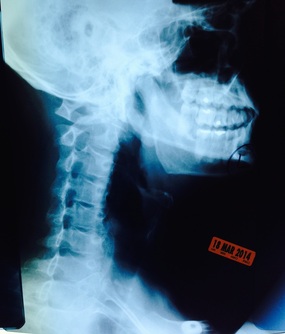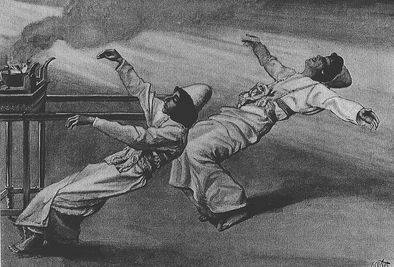
There are a few popular notions about kashrut that should be dismissed immediately. Many Jews believe that the prohibition against eating some animals, especially pigs, is rooted in an ancient concern about health – as if it was dangerous to eat pork before science understood the parasites that cause trichinosis. This is patently false. The necessity of cooking meat thoroughly was known to the ancients. The laws of kashrut have nothing to do with physical health.
Many people believe that the purpose of the biblical dietary laws was to keep Jews separate from non-Jews. Keeping kosher requires Jews to use special facilities for the slaughter of animals and the preparation of food under close supervision. As a result, traditionally observant Jews today must live near sources of kosher food and stay away from markets and restaurants that do not adhere to their standards. However, those requirement are the creation of post-biblical rabbinic law. The laws of kashrut as they appear in the Hebrew Bible are not so stringent. Moreover, they come from a time when the Jewish people were unified as a nation and had no need to separate themselves from non-Jews. The laws of kashrut did not originate to keep Jews separate.
So, what is the purpose of these laws? What spiritual meaning do they convey?
There is one thing that is clear from the dietary laws in this week's Torah portion (Shemini): they force us to notice carefully the characteristics of the animals we eat. We must divide the animal kingdom into categories – animals with cloven hooves and without, animals that are ruminates and those that are not, water animals with fins and scales and those without. Kashrut is primarily about noticing and categorizing.
The ability to notice is certainly a spiritual practice. When we take the time to look at and consider what we put into our bodies, we are striving toward a way of eating that is not just about satisfying bodily desires. Kashrut elevates eating above a brutish and animalistic act and turns it into an act of appreciation, discernment and gratitude. Kashrut reminds us and makes us accustom to curbing our impulses. It teaches us to discipline our desires according to boundaries, to notice which desires are worthy of acting upon and which are not.
The obvious application of this discipline lies in the area of sexuality. You may have noticed that human beings are not always good about observing boundaries concerning sexual impulses. Too often, we fail to put the people we desire sexually into their appropriate categories – those who are permitted to us and those who are prohibited. Teaching people to exercise discipline about the foods they put into their bodies is one way to teach them also to exercise discipline regarding sexuality. Our bodies are sacred and the choices we make with them matter a great deal.
Of course, there are other, less obvious applications to the principle. Every day, we encounter temptations in life that we have to negotiate. Making choices in how we spend our time, how we parent our children, how we react to our own fears and anger, require wise discernment and the ability to curb our instincts.
There is biblical support for the idea that the laws of kashrut are intended to teach us to exercise discipline and wisdom in our lives. In one passage from this week's Torah portion, there are laws about the land animals we are permitted to eat and those that are prohibited:
You may eat all [land animals] that have both divided hooves – cloven hooves – and chew their cud. However, you may not eat … the camel, which chews its cud but whose hooves are not divided (it is a source of impurity for you), the hyrax, which chews its cud but whose hooves will not be divided (it is a source of impurity for you), the rabbit, which chews its cud but whose hooves were not divided (it is a source of impurity for you).
–Leviticus 11:3-6 (emphasis added)
Most English translations do not reflect the change in verb tense in the highlighted phrases, but they are obvious in the original Hebrew. The Hebrew verb to "divide" in this passage (mafris, yafris, hifrisah) is presented in the the present, future and past tenses, suggesting that making distinctions requires an awareness of past, present and future. When we make choices about how we respond to our impulses, we must think about how our choices are a reflection of our own past history, what they say about our present situation, and how they are likely to affect us in the future.
Think about the choices you have made that you have come to regret in your life. (Everyone has at least a few.) Consider, in retrospect, how you might have made a better choice if you had thought about how you were influenced by your previous history. Consider how you could have saved yourself from some suffering if you had better understood where you stood at that moment. Finally, think about how consideration of your future may have helped you make a better decision.
Kashrut is not just about lists of foods on the permitted and prohibited lists. It is about mindful awareness of the ways that we respond to our own hungers and desires. It is about making wise choices. It is about noticing where we have been, where we are, and where we would like to go in life.
Other Posts on This Topic:
Sh'mini: Eat. Pray. Kashrut.
Sukkot: Reconnecting to Our Food




 RSS Feed
RSS Feed
